Celebrate Earth Day with Organic Tea!
Happy Earth Day! We hope your Saturday includes a hike, gardening, a walk through the neighborhood, a park clean-up event — anything that brings you closer to the natural world that inspires, dazzles, amazes and sustains us all.
When the celebration first began, in April of 1970, it was the brainchild of then-U.S. Sen. Gaylord Nelson from Wisconsin. His desire to designate one day a year to honor Earth resonated: 20 million people across the United States got out and protested lax regulations that permitted companies to pour noxious chemicals and waste wherever they liked. Months later, Congress created the Environmental Protection Agency, a new federal agency to wrestle with environmental issues.
Today, Earth Day is not just an American thing: at least 193 countries formally acknowledge it, and people around the world engage with a diversity of efforts to help ensure that Earth remains clean, safe and healthy for life.
In the years since the first Earth Day, many important movements have emerged that address responsible environmental stewardship. We now hear a lot about regenerative agriculture, an approach toward cultivating crops and livestock that mitigates the release of carbon into the atmosphere, protects and even nurtures biodiversity and leads to less environmental degradation.
Regenerative agriculture comes to tea
We champion regenerative agriculture, and trumpet tea farmers that incorporate some of its hallmarks into their farming operations. Tea, after all, is an agricultural product. Some of this work, for example, is happening on the slopes of the Himalayas in India. With climate change disrupting monsoon season, flooding and landslides have grown more common and devastating. As regenerative agriculture focuses on soil health, some tea plantations in India engage in practices that bolster soil vitality and strength, thus rendering climate-wrought problems less troublesome.
While protecting tea trees from damage, the practices also invigorate the soil and mitigate environmental damages that often result from farming. Another regenerative practice that more and more farms are embracing: leaving tea tree prunings on the ground, rather than carting them away to be used as fuel. Those prunings add vital nutrients and texture to the soil as they decompose. Leaving them in place nurtures the soil from which tea trees root and rise.
The OG environmental standard: organic
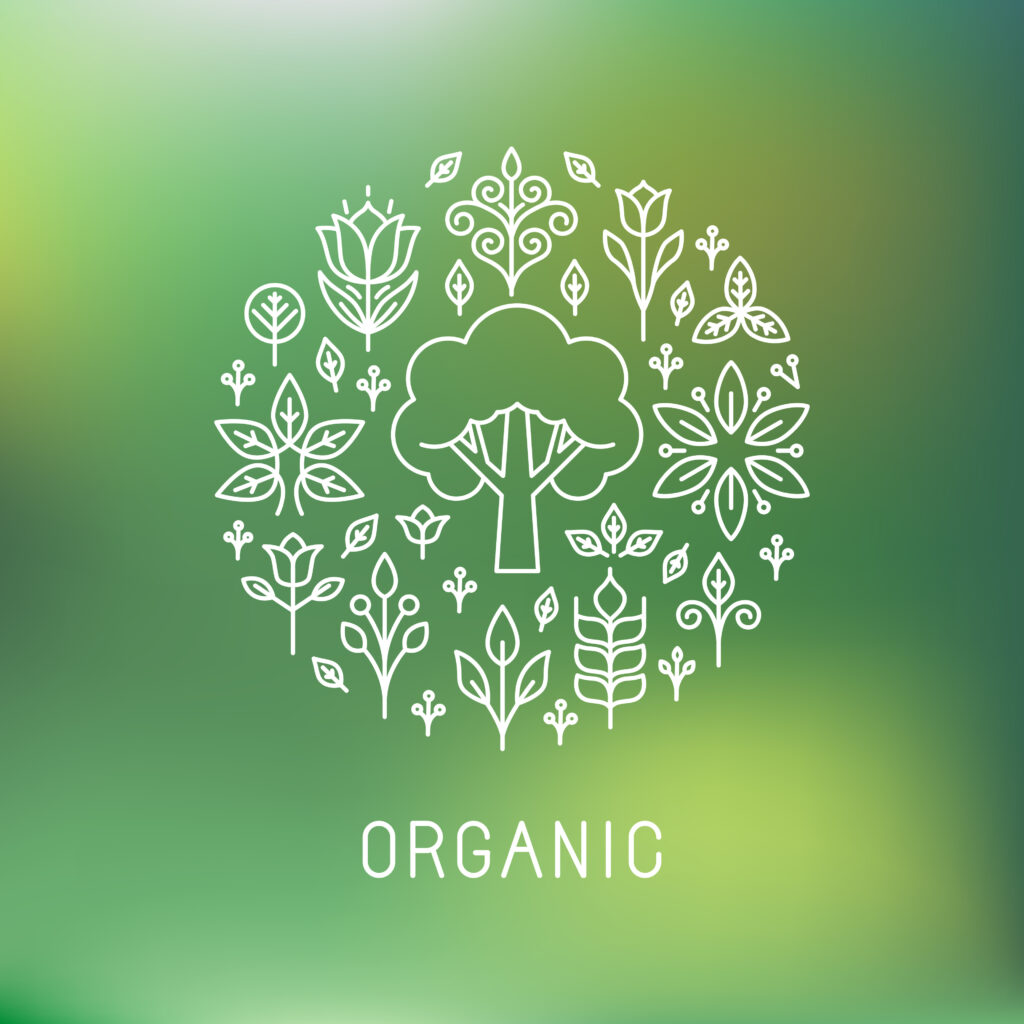
Prior to regenerative agriculture, another farm-related movement — organic agriculture — entered the zeitgeist. Today, environmentalists and consumers herald organic farming for its rejection of dangerous pesticides and herbicides, its commitments to soil health and many more environmental advantages. In addition to the USDA organic seal, there’s even a seal now called Regenerative Organic Certified (ROC), that requires products first pass the rigorous tests required to gain organic certification, and then fulfill a range of other requirements that ensure the product is also the result of regenerative agricultural practices.
We are on the hunt for potential tea partners seeking ROC designation. But we already carry an enormous number of organic teas, in both traditional Camellia sinensis and herbal. In fact, we probably offer the widest selection of organic teas in Colorado, if not the Rocky Mountain West. Carrying these products has been a passion for us from the beginning. It delights us to offer our guests such a deep bench of high-quality, organic teas, mostly grown by small farmers in Asia and elsewhere around the world.
Drink organic tea!
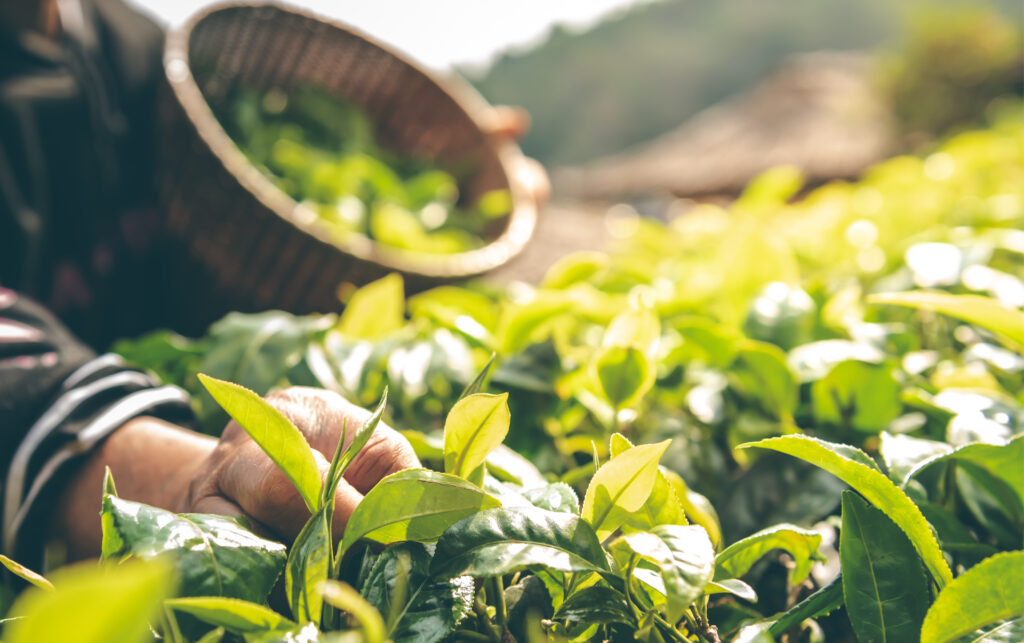
As we approach Earth Day, consider searching through our selection for organic teas, all of which we selected for their exquisite flavor as well as to support the farms that reject nasty chemicals and depend on natural methods to raise vigorous, healthy tea trees and yield superb leaves and buds. This year’s theme for Earth Day is “Invest in our Planet”; picking up a little organic tea is a good first step.
No matter where you live, we hope the weather cooperates (here in Colorado, it’s looking brisk, with temperatures in the 40s) for some restorative time in nature during this Earth Day weekend. Temperatures here might prevent picnics, but that’s OK. Start the day with a cup of organic tea, brew a pot with another kind of organic tea and fill a thermos with it for your time in nature; the tea will keep you warm on this Earth Day!
Sustainable Tea: Organic Darjeeling 1st Flush Black
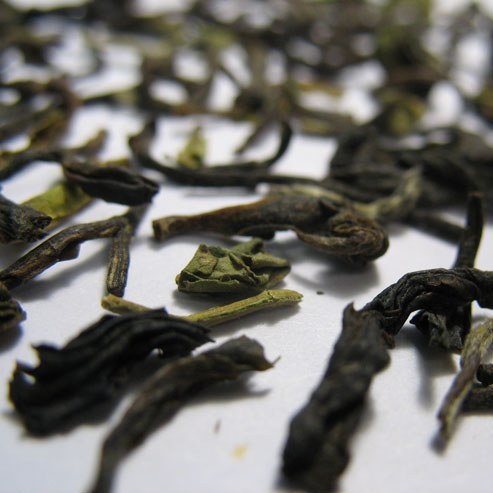
The city of Darjeeling in India’s West Bengal state is famous for its tea, which is known simply as Darjeeling. Farmers harvest tea in Darjeeling from March through November, and divide them into four “flushes,” each harvest of which yields different flavors, textures and aromas. As flushes progress across the harvest season, quality tends to decline, as the monsoon season’s abundance of moisture and heat leads to aggressive growth on the tea trees, and watered-down flavors. Our 1st Flush Black Tea gets harvested during the first flush season, running from late February into April. Tea farmers pluck silver buds, which roll and elongate after harvest, and then allow oxidation to turn the leaves into black tea.
This beautiful tea offers honey-toned and full-bodied flavors, with notes of muscatel grape, a family of grapes that often present lychee-like flavors, and ripe fruit in general.
Sustainable Tea: Organic Cloud Chaser Herbal
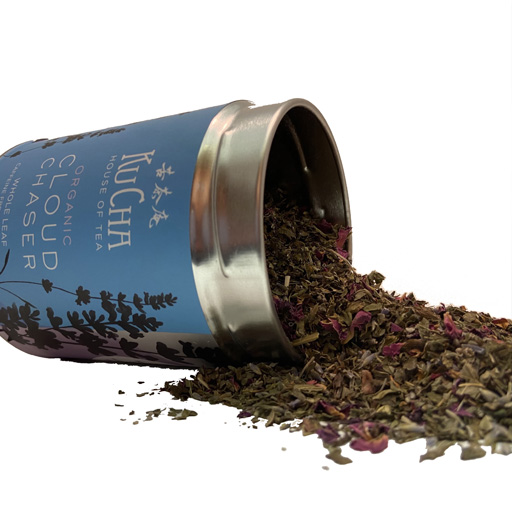
Most of our teas at Ku Cha come from the traditional tea plant, Camellia sinensis. But many of these teas also contain botanicals that add additional flavors and perfume to the blend; these often are flower blossoms, like jasmine and rose.
And then there’s our large selection of herbal teas, which in many cases include wide varieties of herbs, spices, flowers and more. At Ku Cha, many of these teas are organic, or contain a majority of ingredients that are organic. With eroding biodiversity rising as yet another environmental threat to the world, we appreciate supporting small farms around the world that grow organic botanicals, including six in this blend: lemon balm, lavender, marjoram, peppermint, rose petal and St. John’s Wort. By sending capital to the farmers growing these botanicals, all of which add to biodiversity and support plant, insect and animal life, we all help these small businesspeople continue to nurture farms that raise a banquet of crops, using organic methods, rather then mono-crops like corn or wheat that normally get sprayed with chemicals.
The tea is delicious! And the addition of St. John’s Wort helps lift people’s moods — the botanical even gets prescribed for mild depression in parts of Europe.
Sustainable Tea: Organic Sencha Green
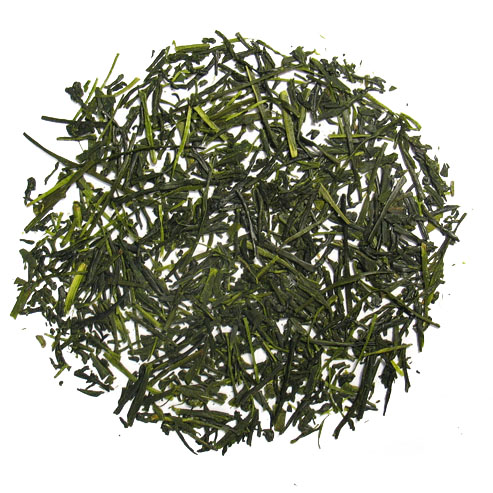
Matcha, the powdered green tea found in lattes, cupcakes and tea ceremonies, stands as the most famous Japanese tea. But in Japan, sencha green tea is the most popular, sipped all day and served with meals by Japanese from Hokkaido in the far north to Kyushu, Japan’s most southern major island.
Sencha is such a versatile tea, just as welcome with a sushi meal as it is with other Japanese classics like ramen and yakitori, as well as savory dishes like broccoli rabe pasta, French onion soup — even barbecue.
Our organic sencha is made from tea leaves picked in the early spring in Shizuoka, Japan. These fresh leaves are then steamed to halt oxidation — which is a key difference between many Japanese and Chinese teas; in China, tea is normally roasted —and then lightly rolled. The result? A mellow, refreshing, sweet taste with a pleasing and lingering buttery finish.

